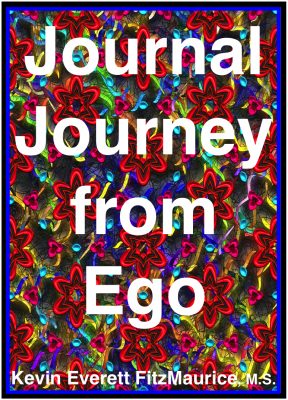Against50 Arguments2 QuotationsRelated Pages6 Groups of Topics10 Skills & Topics
50 Disputes of Self-Esteem
- Ego will help you to recognize, remove, and replace your ego: a.k.a. self-esteem.
50 Disputes of self-esteem help to rid you of this nutty, & harmful belief system. Learn why self-esteem is self-delusional and self-defeating.
“Once you label me, you negate me.” —Søren Kierkegaard
- Read and discover the best journaling system to end ego.
SELF-ESTEEM IS IDENTIFYING WITH THE BEHAVIORS OF THE BODY
- Prove right now that you are the behavior you are judging your self to be! Where is the evidence that you are the behavior that you are judging your self to be?
- Where is it written that people are or can become their behavior? Where is it written that your being becomes your mistakes?
- Whose law is it that you must regard your self as your behavior, and especially so if it is negative? Where is the evidence that you must become your negative behavior?
- Prove that because you did some ignorant or foolish thing in the past that that damns you to repeat it forever. Where is the evidence that just because you behaved badly that that makes you, your being, bad?
- Prove that the behavior is the judgment of it! Where is the evidence that the behavior and the judgment about it are one and the same?
- Is a car its actions? How can you be your actions? You are much more than a car! Is the air its actions? You are more than air!
- Where is the proof that you are definitions? Aren’t you your nonverbal being?
- Prove that your being can become some thing? What happens to your self when you imagine it becomes things, thoughts?
- Why can’t you ever find and demonstrate your self as definitions, behaviors, labels, words, thoughts, images, concepts, etc., in the here-and-now? Why can they only occur about the past? Isn’t all thought only of the past? Aren’t you in the present!?
- What are the fair, just, and consistent procedures that you use to judge your self to be one thought and not another? Is there any way to validate why some of your thoughts should get the “I” label, and some shouldn’t?
- Prove that your unique being is general just because you need it to be to assume it is thoughts, labels, descriptions, and things because their nature is general.
- Prove that you were ever able to surround and experience your entire self at once so that you could know it to rate or judge it as anything.
- Prove that you were able to stop time and your own flowing, your own process so that you could judge your self to be some static thought? When did you capture your self?
- Show how you can now be your past behaviors when they are obviously not here but are only represented by distorted and incomplete memories.
- Prove that thought is your experience of your self. What happened to the sensations of your self without thought? What are the thoughts about if they are you and you have thoughts about your self?
- Where is the evidence that thought knows reality, knows all of it, knows enough truth to make any judgments? When does thought perceive or sense under its own power?
- Prove that your thoughts are the experiences that they claim you were and are. Can thoughts be experiences or only limited, partial, and fragmented representations of them? If thoughts are not the real experiences, then what are you if you are thoughts?
- Prove that thoughts, definitions, descriptions, behaviors, sensations, perceptions, or whatever–can know your being and your infinitely complex situation. Don’t they always have to isolate you from your situation to classify you? Can or have you ever existed independently of your situation, environment, milieu, circumstances, conditions?
- If your self is thoughts, definitions, descriptions, behaviors, images, etc., then how does it continue, how does it remain alive, how is it more than a rock or a robot?
- Prove that thought is or can be responsible for your selfhood or your behavior.
- Where is the evidence that static thoughts can ever know or understand the dynamic self?
- Where is the evidence that static thoughts have ever or can ever be your dynamic self?
- Where is the evidence that static thoughts are ever or can ever do your dynamic self?
- Aren’t all your thoughts of self at best only maps of the territory of the self? Is the map the territory? Can it be? Should it be mistaken for or treated as such?
- Prove that the necessarily limited bits of reality that thoughts, descriptions, and definitions are–can be about or can be your whole self. Realize that even a true sum of the parts can’t be the whole, let alone the sum of your limited definitions.
- Where is the proof that your judgments of your self are more accurate or more real than anyone else’s of your self? How do or can you determine whose judgments are accurate? Yours are too subjective, and theirs are too lacking in your experience. So which judgments are supposed to be you–yours or theirs?
- Can thought observe the self? If thought cannot observe the self, then how can thought know the self? If thought cannot know the self, then how can thought claim to represent the self? If thought cannot even represent the self, then how can thought claim to be the self?
- Can the observer observe itself? Can your self observe itself? Who is it that observes the self and names the self as something other than that which is observing it?
- Does the self see the self? Does the self name the self? If the self is naming itself, then how can the self be the name of itself?
- Prove that you can be words when words have variable meanings and are not limited to any one interpretation. Won’t everyone interpret your words differently? So which of the different interpretations are you? Prove yours are more real, accurate, knowing, or complete than everyone else’s.
- Prove that you are in the present what you thought you were in the past just because you thought you were before. How does that follow logically? Isn’t that a non sequitur?
- Since nothing, including you, can ever repeat, then how is it that you believe that you are something that has already occurred in the past? Are you what has happened that cannot happen again? Isn’t this just what you claim when you claim you are what you did!?
- How can you repeat being the thought that you thought you were when you thought you were that thought in the past?
- Where is the evidence that the nonverbal self, the true self, can ever be known or captured by any verbal means?
- Prove that your ego is permanent. Isn’t it your assumption that your ego is permanent when you define and create it using concrete and static thoughts and memories of experiences? Are not all human experiences fleeting? Isn’t it true that anything observable is impermanent? How can you make your self into what is no more?
- Prove that you are one with your ego, with your self-concepts, with your self as thoughts. Aren’t you separate? Don’t you judge, choose, persecute, repress, praise, enjoy, suffer, and experience all manner of sensations in regard to thought? Aren’t you in the present and thoughts in the past sometimes; aren’t you in the present observing thoughts in the present sometimes; aren’t you in the present imagining thoughts in the future sometimes? When do the two meet and form you?
- Where is the evidence that your relationship with the world is a knowledge-thing? Is this not what you claim when you think of yourself in relation to your experiences as something, as some judgment!?
- Where is the evidence that your knowledge-thing of self is part of your knowledge-thing of your relationship with the world? That is, how does your self-image become reborn as your social-image?
- Does your self exist in two separate worlds? Does your self exist in the world of self-images and also in the world of social-images? Can your self exist in both of these worlds at the same time? What happens to your self when these worlds collide?
- Where is the evidence that your knowledge-thing of the other person is a part of your knowledge-thing of your relationship with them? That is, how does your self-image for another fit into and become a part of your social-image for them? Does this transform their self?
- Where is the proof that your self is the separation, the individuation of your knowledge-thing of yourself from your knowledge-thing of your relationship with the world? In other words, by what logic do you claim that you are more your self-images than you are your social-images?
- Prove the reality of any knowledge-things–enmeshed or differentiated? That is, are knowledge-things (e.g., self-images) anything more than imagination, than imagined realities that have no substance, form, or direct relation to a self existing in the real world (outside of the mind)?
- Prove the reality of the imagined relationships of knowledge-things? That is, is the relating of knowledge-things (e.g., social-images) any more than imagination? Your social-images are an imagined reality that has no substance, form, or direct correlation in the real world (outside of the human mind): Maya.
- Where is the evidence that you are a god who can create themselves out of thoughts, definitions, and descriptions? Isn’t self-esteem just fanciful thinking!?
- Prove that you are omniscient and omnipresent. Prove that your senses are omnidirectional. Obviously, you can’t. Hence, all your judgments, observations, knowings, and claims are limited and at best, only arbitrary. If they are limited, then your self is limited by them. If your self is limited by them, then what happens to the parts of self that are left out of your definitions? If they are limited, then how can they honestly be the full you?
- Please show us your logical system for determining your ego. What? You have none! You mean to say that if you are honest, then you must admit that you determine what your self is without rhyme or reason? Then how can the self you fabricate be fair, honest, or real?
- When did you study and learn a system of self-esteem thinking that would at least more often than not provide an accurate picture of you? You mean to say that you decide who and what you are without anything more than emotion and whim to guide you? Then surely you cannot take the resulting nonsense seriously!
- Do you magically become whatever it is you think you are? Do others also magically become the thoughts that you think they are?
- I suppose it is not superstitious to think that if someone does not like you that you have become some bad thing. I suppose it is not superstitious to think that if you are having a bad day that it is because you are a bad thing. I suppose it is not superstitious to think that if you have something bad that that makes you a bad thing. I suppose you wouldn’t mind if I left this planet!?
- When do all the definitions of a university become that university? That is, if we collect all of the definitions of anything and put them into one place, will we then have that thing? No. Yet, you do not bother to collect all of the definitions of your self into one place. No. You can take any one definition and claim that it is you whenever you feel like it. Great job. Yes, humans are quite rational. Please, let me out of here now!
- The above was excerpted and modified from the first edition of Planet Earth Insane Asylum for the Universe: The First Report to the 2000 High Council. It was further modified for Planet Earth: Insane Asylum for the Universe, Second Edition.
- Read and discover the best journaling system to end ego.
2 QUOTATIONS
“That which is real is not the continuation of identifying memory.” —J. Krishnamurti, The Collected Works of J. Krishnamurti, Volume IV, p. 53
“Self-esteem steals souls.” —Kevin Everett FitzMaurice
- Read and discover hundreds of disputes of self-esteem and your self-constructions.
- Read and discover the best journaling system to end ego.
Related Pages of Free Information
- 3 Tests Show Self-Esteem Insane
- 5 Step Solution to Self-Esteem
- 10 Questions End Self-Esteem Games
- Definitions of Self-Esteem
- Fifty Arguments: I Am Not Feelings
- Fifty Arguments: I Am Not Thoughts
- Four Main Insane Beliefs of Self-Esteem
- Thinking Testing: List Pages
- Read and discover how CBT, REBT, & Stoicism evolved into one system: STPHFR.
- Read and discover the best journaling system to end ego.
6 Groups of Topics Menu
- 1. Pages by Topic
- 2. Fast-Facts by Topic
- 3. Quotations by Topic
- 4. Poems by Topic
- 5. Scripture by Topic
- 6. Websites by Topic
- Read and discover how CBT, REBT, & Stoicism evolved into one system: STPHFR.
- Read and discover the world’s best breathing exercise for centering and peace of mind.
- Read and discover the best journaling system to end ego.
10 Skills & Topics Menu
- 1. Coping Skills & Topics
- 2. Problem-Solving Skills & Topics
- 3. Communication Skills & Topics
- 4. Recovery Skills & Topics
- 5. Anger Skills & Topics
- 6. Blame Skills & Topics
- 7. Thinking Skills & Topics
- 8. Responsibility Skills & Topics
- 9. Counseling Skills & Topics
- 10. Praying Skills & Topics
- Read and discover how CBT, REBT, & Stoicism evolved into one system: STPHFR.
- Read and discover the world’s best breathing exercise for centering and peace of mind.
- Read and discover the best journaling system to end ego.




